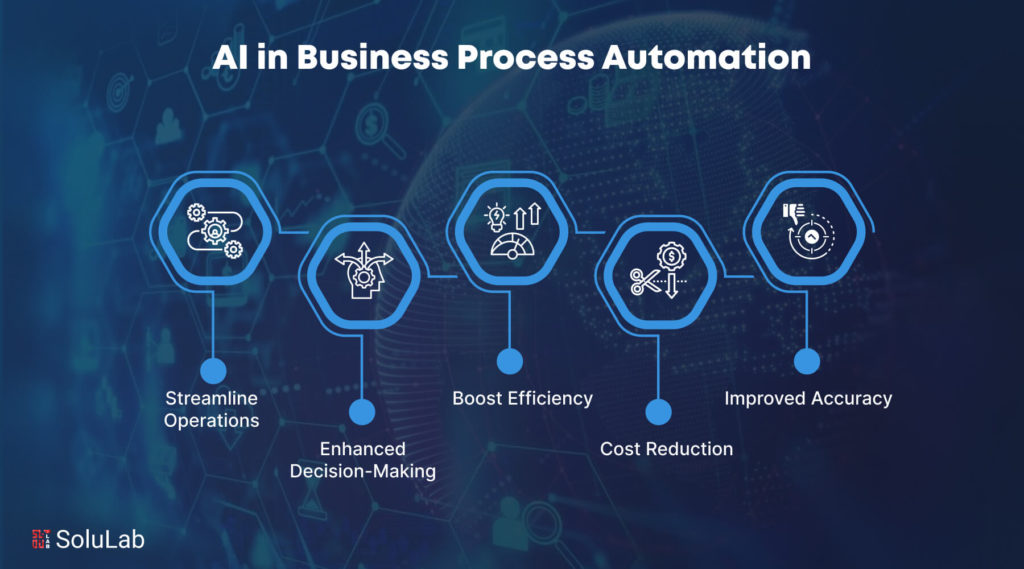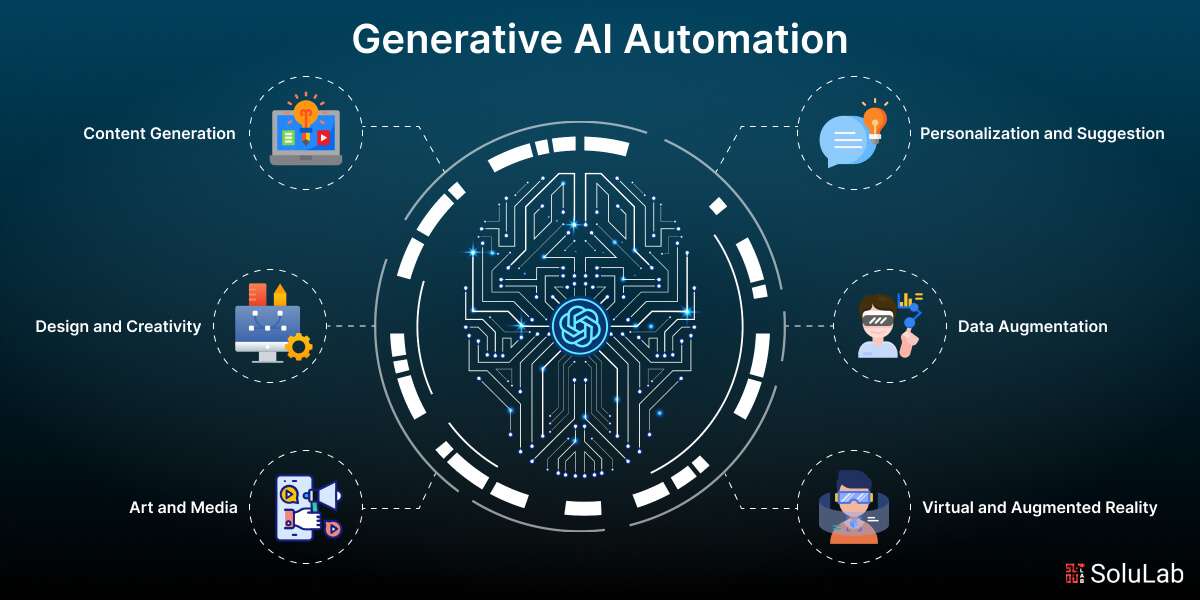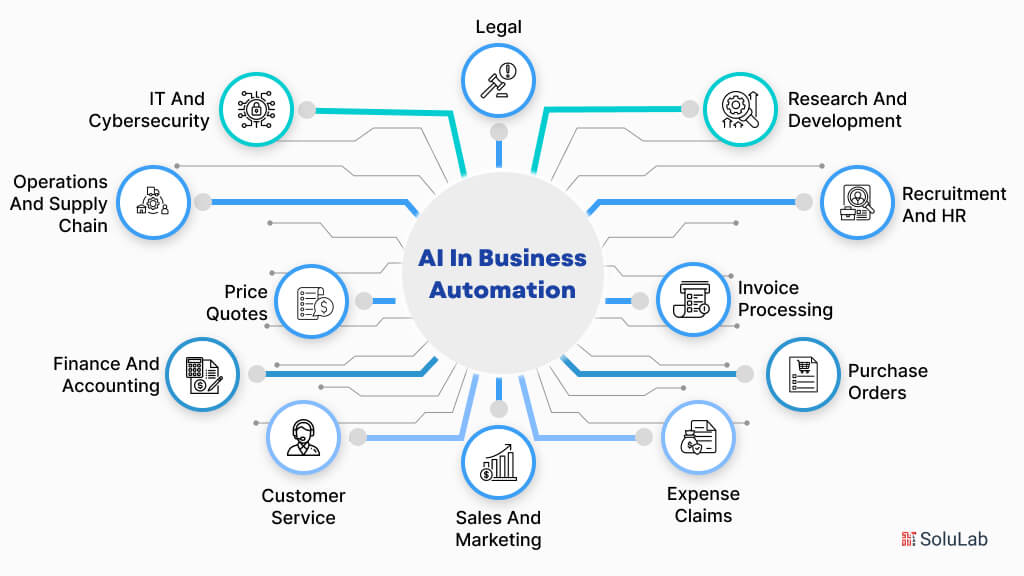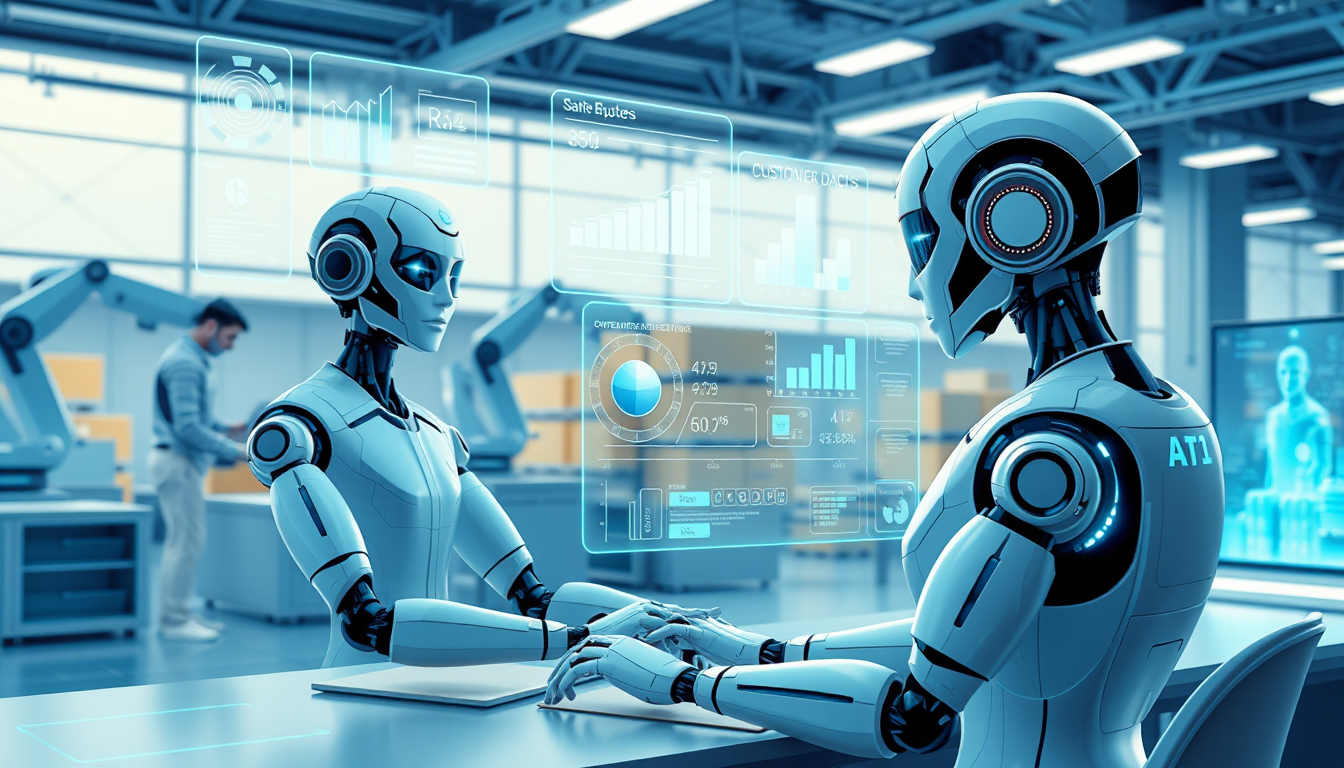Introduction
Overview of Artificial Intelligence
Artificial Intelligence (AI) has transformed the way businesses operate. By mimicking human intelligence, AI systems analyze data, learn from experiences, and optimize processes. Imagine a customer service representative who never gets tired or a sophisticated algorithm that analyzes market trends in seconds. That’s AI at work, helping businesses stay ahead in a competitive landscape.
Significance of Automation in Business
Automation is a key player in enhancing efficiency and productivity. Companies are increasingly embracing automation tools to streamline operations and reduce costs. Here are some notable benefits:
- Increased Efficiency: Tasks that typically take hours can now be completed in minutes.
- Cost Savings: Reduced labor costs and minimized errors translate into financial savings.
- Enhanced Productivity: Employees can focus on strategic initiatives rather than mundane tasks.
In this evolving landscape, understanding AI and automation is crucial for businesses aiming to thrive in the digital age.

The Role of AI in Decision-Making
Data Analysis and Predictive Analytics
In today’s data-driven world, AI plays a pivotal role in decision-making. Through sophisticated data analysis and predictive analytics, businesses can uncover valuable insights from vast amounts of information. For example, imagine a retail company analyzing customer buying patterns. By applying AI algorithms, they can forecast trends, optimize inventory, and improve marketing strategies. Key benefits include:
- Enhanced Accuracy: AI reduces human error by analyzing data objectively.
- Speedy Insights: Decision-makers can access real-time analytics, leading to quicker, informed choices.
- Scenario Planning: Predictive models allow companies to simulate outcomes for different strategies, minimizing risks.
Automating Routine Decisions
In addition to analyzing data, AI excels at automating routine decisions. Businesses utilize AI to handle repetitive tasks such as scheduling, invoicing, and even approving standard expenses. This automation leads to:
- Time Savings: Employees can concentrate on more strategic tasks rather than getting bogged down with mundane decisions.
- Consistency: AI ensures that decisions based on established criteria are applied uniformly across the board.
- Scalability: As companies grow, AI systems can handle increasing volumes of routine decisions without additional strain.
With AI managing these aspects, organizations can foster a more agile and responsive operational environment.

Enhancing Customer Service with AI
Chatbots and Virtual Assistants
As businesses seek to improve customer service, AI-driven chatbots and virtual assistants have become invaluable tools. These automated systems can handle a multitude of customer inquiries, providing instant responses 24/7. Imagine being able to resolve a billing issue at midnight without waiting for a representative! Benefits of using chatbots include:
- Immediate Responses: Customers receive answers quickly, which enhances satisfaction.
- Cost Efficiency: Reduced reliance on human agents leads to significant savings.
- Scalability: As customer interactions grow, chatbots can effortlessly handle the increased demand.
Personalized Customer Interactions
Beyond responding to queries, AI enhances customer service by enabling personalized interactions. Using customer data and historical behavior, AI systems can tailor recommendations and communications. For instance:
- Targeted Marketing: AI can analyze past purchases to suggest complementary products, increasing sales.
- Customized Support: Customers may receive proactive support based on their usage patterns, leading to improved retention rates.
By integrating these AI features into customer service strategies, businesses can build stronger relationships with their clientele while driving engagement and loyalty.

AI Applications in Operations
Supply Chain Management
Continuing the trend of AI’s impact, supply chain management showcases its capabilities in optimizing logistics and inventory. By utilizing AI, companies can predict demand fluctuations, manage stock levels, and improve delivery efficiency. For instance, a leading retailer can use AI algorithms to anticipate seasonal spikes in demand, ensuring the right products are available at the right time. Key advantages of AI in supply chain management include:
- Enhanced Forecasting: AI analyzes historical data to predict future trends accurately.
- Risk Mitigation: Identifying potential disruptions enables proactive measures.
- Cost Reduction: Streamlined processes lead to lower operational costs.
Process Optimization
AI also drives process optimization by automating workflows and improving operational efficiency. For example, manufacturers use AI-powered robotics for quality control, drastically reducing error rates. The benefits of process optimization through AI are clear:
- Increased Efficiency: Automating tedious tasks allows employees to focus on value-added activities.
- Data-Driven Decisions: AI provides insights that help refine processes continually.
- Flexibility: Businesses can adapt quickly to market changes by optimizing their operations dynamically.
With AI steering supply chain management and process optimization, organizations can achieve a level of efficiency and adaptability that was previously unattainable.
Challenges and Considerations
Ethical Implications of AI
While AI brings numerous advantages, it also presents ethical challenges that businesses must address. Decisions made by AI systems can sometimes lack transparency, leaving users questioning how conclusions were drawn. For example, consider a hiring algorithm that favors certain demographics over others. This bias can harm an organization’s reputation and its commitment to diversity. Important ethical aspects to consider include:
- Fairness: Ensuring AI systems provide equal opportunities and do not perpetuate existing biases.
- Accountability: Determining who is responsible for AI-driven decisions.
- Privacy Concerns: Safeguarding sensitive data while leveraging AI for insights.
Integration with Existing Systems
Another significant hurdle is integrating AI with existing systems. Many companies rely on legacy systems that may not support modern AI technologies. For instance, an organization might struggle to combine its traditional customer relationship management system with an advanced AI-driven analytics tool. To facilitate smooth integration, businesses should:
- Assess Compatibility: Ensuring new AI technologies can work alongside existing infrastructure.
- Train Employees: Providing necessary training ensures the workforce can adapt to new tools.
- Prioritize Change Management: Encouraging a culture that embraces innovation helps mitigate resistance.
By addressing these challenges, businesses can harness the true potential of AI while navigating the complexities of ethical and integrative considerations.

Future Trends in AI and Automation
Machine Learning Advancements
As we advance into the future, machine learning (ML) is set to revolutionize industries even further. With improvements in algorithms and data processing capabilities, businesses can expect more sophisticated AI systems that learn and adapt at unprecedented rates. For example, consider self-driving cars that continuously refine their routes based on real-time traffic data and user patterns. Key advancements to watch for include:
- Enhanced Predictive Accuracy: Machine learning models that anticipate consumer behavior more accurately.
- Real-Time Learning: AI systems that adapt immediately based on new information, optimizing processes on the go.
- Broader Applications: Expanding ML applications into more sectors, from healthcare to finance.
Impact on Workforce and Job Roles
With these advancements, the impact on the workforce will be significant. AI and automation will transform job roles, requiring workers to develop new skills. While some traditional positions may diminish, new opportunities in AI oversight, data analysis, and tech support will arise. Considerations include:
- Reskilling and Upskilling: Employees must embrace continuous learning to stay relevant in a rapidly changing environment.
- Hybrid Roles: Job descriptions will increasingly blend human creativity with AI efficiency.
- Job Creation: Contrary to fears of widespread unemployment, AI can lead to the creation of innovative roles that enhance business capabilities.
By preparing for these trends, organizations can navigate the evolving landscape of AI and automation, ensuring their workforce is equipped for the future.

Case Studies and Success Stories
Companies Leveraging AI Effectively
In examining the impact of AI, several companies stand out as pioneers in leveraging technology for tangible results. For instance, Amazon has integrated AI across its operations, from predictive analytics in inventory management to personalized recommendations for customers. Similarly, Netflix uses machine learning algorithms to curate content tailored to individual viewing habits, enhancing user engagement. Notable examples include:
- Tesla: Utilizing AI in autonomous driving technology to enhance safety and efficiency.
- Zara: Implementing AI for demand forecasting and inventory optimization, reducing overstock and improving profitability.
Benefits and Results Achieved
The outcomes of these implementations speak volumes. Businesses have reported:
- Increased Efficiency: Operations streamlined significantly, allowing for quicker turnaround times.
- Higher Customer Satisfaction: Personalized experiences leading to enhanced customer loyalty.
- Cost Reduction: Intelligent automation helping save on operational expenses.
These case studies not only demonstrate the potential of AI but also serve as inspiring examples for other organizations aiming to integrate smart technologies into their operations for maximum impact.

Conclusion
Recap of AI Benefits in Business
As we’ve explored throughout this discussion, the integration of AI in business operations brings a multitude of benefits. From enhancing decision-making processes through data analysis and predictive analytics to transforming customer service with chatbots and personalized interactions, AI has proven to be a game-changer. Key advantages include:
- Increased Efficiency: Automating routine tasks frees up valuable human resources.
- Improved Accuracy: Reducing errors in analyses and operations leads to better outcomes.
- Cost Savings: Streamlining processes can significantly reduce operational costs.
Looking Ahead: Opportunities and Risks
However, it’s crucial to remain aware of the opportunities and risks ahead. While AI presents exciting possibilities for innovation and growth, businesses must also navigate ethical implications, workforce transformations, and integration challenges. Organizations that adapt proactively by investing in training and responsible AI practices will be best positioned to thrive in this fast-evolving landscape. Embracing these changes holds the potential for remarkable advancements, but only if approached thoughtfully and strategically.

